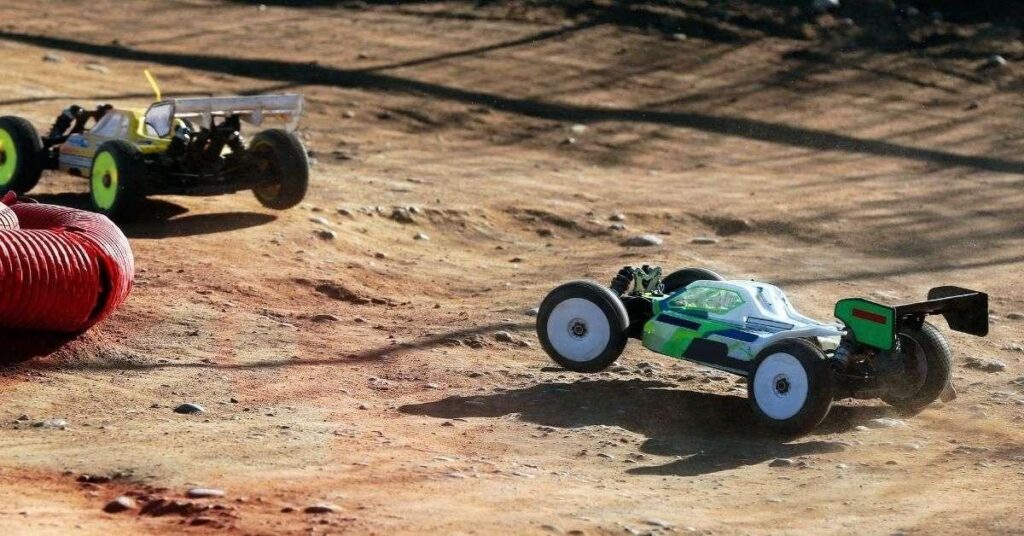Diving into the world of Remote-Controlled (RC) hobbies can be an exhilarating experience, offering a unique blend of technology, skill, and fun. The RC hobby world is diverse, encompassing everything from high-speed RC cars to graceful RC airplanes, each offering unique challenges and rewards. This article is tailored to help beginners navigate the initial steps of this fascinating hobby, providing essential tips and insights to kickstart their journey. Whether for leisure or competitive racing, the RC world is ready to welcome enthusiasts into its dynamic and thrilling realm.
Understanding Different Types of RC Models
The RC hobby world is vast, with various types of models catering to different interests and skill levels. Understanding these options is crucial for beginners to make an informed choice. RC toy cars and trucks are famous for their versatility, ranging from off-road buggies to on-road racing cars. RC airplanes offer an opportunity to explore the skies, with models varying from simple trainers to complex scale models. RC helicopters and drones bring vertical flight and aerial photography into play, while RC boats provide a water-based experience. Each type requires a different skill set and offers a unique experience, making it essential for beginners to choose a category that aligns with their interests and desired level of challenge.
Starting with the Basics
For newcomers, it’s essential to start with basic, user-friendly models. Beginners should opt for models known for their durability and ease of control. These typically have fewer features, allowing new hobbyists to focus on mastering fundamental skills without being overwhelmed. Choosing models with comprehensive manuals and support, which can significantly ease the initial learning process, is advisable. Additionally, considering upgradable models can be beneficial in the long run as skills develop and the desire for more advanced features grows.
Learning about Transmitters and Receivers
Transmitters and receivers are the lifeline of RC models, facilitating the crucial link between the pilot and the machine. The transmitter is the handheld device used to control the model, and its complexity can vary based on the number of channels (functions) it controls. Receivers within the RC model receive signals from the transmitter and actuate the model’s movements. Understanding how these components work, including how to bind a transmitter to a receiver and how each control affects the model, is a fundamental skill in the hobby. Beginners should also familiarize themselves with the different types of transmitters, such as those designed for cars, planes, or boats, as each type is tailored to the specific needs of that model.
Basic Maintenance and Repairs
Maintaining and repairing RC models is an integral part of the hobby. Regular maintenance is essential, such as cleaning the model, checking for loose parts, and ensuring electronic components function correctly. Beginners should learn basic repairs like replacing damaged parts, fixing minor electrical issues, and troubleshooting common problems. Understanding the mechanics of one’s RC model helps keep it in optimal condition and deepens the overall enjoyment and satisfaction of the hobby.
Joining the RC Community
The RC community is a fantastic resource for beginners. Engaging with local clubs or online forums can provide invaluable support, mentorship, and inspiration. The community offers a platform to share experiences, learn from others’ expertise, and get advice on everything from model selection to advanced piloting techniques. Many communities also organize events, races, and meetups, offering opportunities to experience the hobby socially and competitively. Being part of this community can enhance the hobby experience.
Practicing and Enhancing Skills
Practice is vital in the hobby. Beginners should start by operating their models in safe, controlled environments, gradually moving to more challenging conditions as their skills improve. Experimenting with different settings, trying out new maneuvers, and continuously pushing the boundaries of one’s abilities are part of the learning process. As proficiency grows, upgrading to more advanced models or trying different RC hobbies can add new dimensions to the experience. The hobby is about continuous learning and improvement, each offering its own challenges and rewards.
Conclusion
Starting in the RC world is an adventure that opens up a universe of possibilities. From understanding the different types of RC models and beginning with the basics to learning about transmitters and receivers, performing essential maintenance, joining the community, and continuously practicing and enhancing skills, each journey offers unique joys and challenges. This hobby provides an exciting and enjoyable pastime and fosters technical knowledge, hand-eye coordination, and a sense of accomplishment. With dedication and enthusiasm, anyone can embark on this thrilling journey and become part of the vibrant hobby community.






